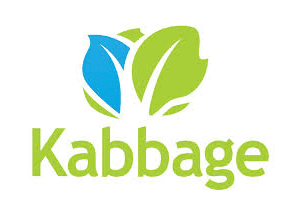When discussing the lending industry and fintech, P2P lending often appears at the forefront of products with the potential of disrupting the traditional banking center. Providing platforms that match investors and borrowers, firms such as Zopa have reported that demand for their offering comes from users who are able to source better interests on their loans using the P2P model, versus going directly to a commercial or retail bank. This contrasts with the P2P lending industry’s initial target audience of individuals and companies that were turned away on their loan requests from banks. The P2P lending industry has also gained increased exposure as Lending Club announced its intentions of going public.
Beyond P2P lending, another area in which banking insiders have conveyed to Forex Magnates, is their belief that technology will play a large role in the future in improving efficiency of the application process of their offerings. In this regard, it is still common for bank customers to follow up on a “pre-approved” loan, only to require additional paperwork days before funds can be accessed. By utilizing data to better understand customers, as well as rely on digital signatures, banks hope to remove friction involved in issuing new loans and selling their products.
Providing an example of using technology to fuel increased efficiency and carve a niche in an area dominated by banks is Kabbage. A provider of short-term working capital to businesses to cover immediate needs such as Payments for inventory of new hiring, Kabbage relies on seller data such as Ebay customer feedback and turnover records, to go along with evaluating traditional credit scores and sales margin. By casting a wider net of understanding to its borrowers, Kabbage is able to provide loans to companies that may have low credit scores, but have consistently been able to operate their commerce business.
Focusing their loan approvals on automated historical data evaluation also allows Kabbage to provide loan approvals in a matter of minutes to their prospective borrowers instead of requiring many days. This efficiency has created a demand among small businesses for Kabbage’s loans, as they can leverage the quicker access of funds to source inventory and sell to the market faster. According to Kabbage in a public statement about recent milestones, loan demand has resulted in the company currently surpassing the $2M in daily funding, doubling the $1M mark they achieved six months ago. Overall, Kabbage expects to triple the amount of total funding lent to borrowers in 2014 versus 2013.
What is worth noting about Kabbage’s growth, has been the firm’s ability to have achieved its success by carving out a niche in an area shunned by traditional banks; ecommerce sellers in need of $100,000 and less short-term capital loans. Part of their success can be attributed to their adaption of technology which has decreased costs associated with the loans they provide. This has allowed them to compete against larger banks which even with their scale of size often can’t economically match the terms being offered by Kabbage.
Commenting on the milestones, Rob Frohwein, Kabbage, Co-Founder and CEO, stated, “While it is gratifying to experience the dramatic jump in funding, it is even more rewarding to be a key partner in driving over $4 Billion in revenue to our small business customers. Thanks to our data capabilities, we know that Kabbage customers increase their revenue by 72% in the 6 months after taking their first Kabbage loan. It is powerful to realize that our small business customers invest that capital into our economy by hiring more employees, purchasing additional inventory, and launching new marketing programs.”













